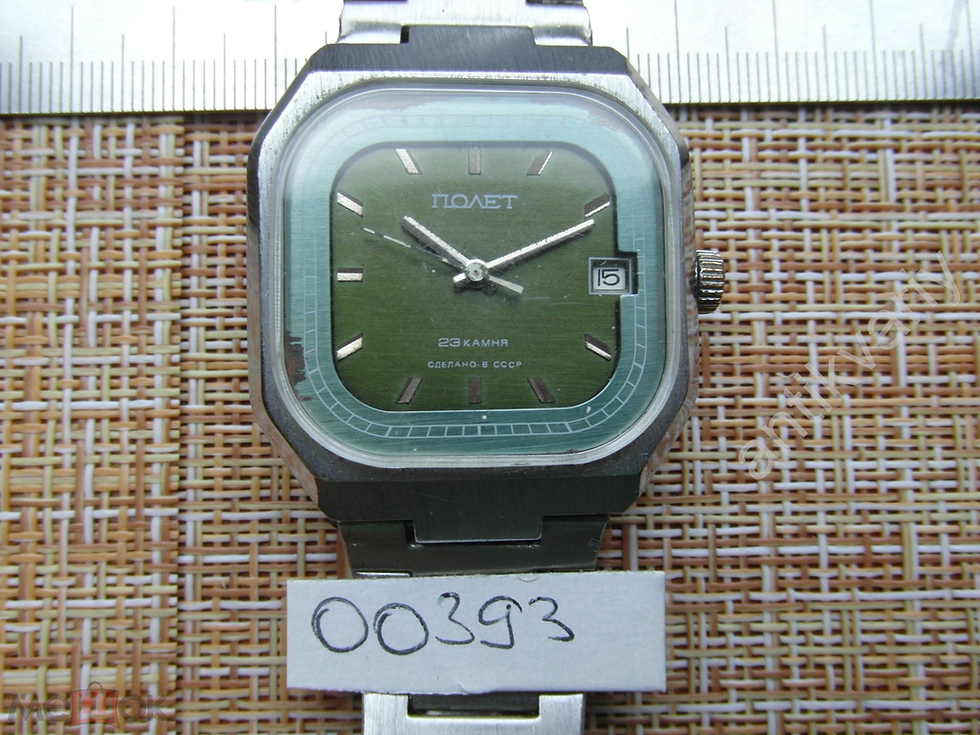"Time is money". Wrist watches during the Soviet-Afghan war
This article is translated from the memoirs of the Soviet soldiers, who served in the 40th Army in Afghanistan, during the Soviet-Afghan war.
I have to say, I'm a big fan of watches. These wrist mechanical devices have always evoked in me a feeling of both admiration and a certain aesthetic pleasure, but this is if the watch is beautiful. I bought my first watch at the age of fifteen with my earnings. Yes, without any metaphor - standing behind the bench tool of the Tashkent Tractor Plant. This was the beginning of practice for the first year of SPTU-57 (college). True, it seems to me that the practice was more of a test, they say, is it your factory or not, because it started in September, that is, from the very first weeks of training and went on for three months, every working day for six hours, like youngsters . The watch was named "Flight", self-winding, in a square shape. Not a bad watch, overall.

In Afghanistan, soldiers had very few watches. Knowing the time was the officers prerogative. They were the ones who needed to know exact time of the operation or the start of the attack. Conscripted soldiers also tried to get watches for constant wear, and not just for demobilization. It was still useful to know the time. This way one would know how much is left until the end of the shift. Nevertheless, watches were rare. For example, while I was in the reconnaissance unit, only two soldiers there had watches. Later on I got into the tank crew, we determined the time by the radio receiver, in which the electronic clock was built in.

Review of the Afghan watch market
Before the Soviet-Afghan war, wrist watches in Afghanistan were not easily affordable and certainly not cheap. Of course, there were Taiwanese and Korean fakes of Japanese watches, but there were few of them - original Japan still dominated the market. Dukandors (Afghani shop keepers) didn’t sell cheap stuff to until 1980. It’s just that no one bought cheap watches there - poor Afghanis didn't need them and it was hard to make profit. But with the advent of the Soviet soldier, a lot has changed in the small-scale business. Cheap stuff, such as electronic watches, flooded in.

Omax, Seiko and Orient were considered as the best mechanical watches at the time and place. It has always been so, and it is so today - these are the most expensive Japanese watches. Few could buy them, and Seiko was especially rare unavailable.
"I remember that back in 2008 my friend and I went to Tokyo in the Akihabara district, where there are no residential buildings at all, but only shop houses. He, as an Epson employee, believed that he had the right to wear only Seiko watches (Epson is a division of Seiko), and we were looking for them. The price tag is biting, we bargained and managed to threw off five percent. I ask him why is it so expensive, he looks at me in surprise and says - this is Seiko."
As the war progressed, the dukans of Herat started to sell both electronic original Casio and their Chinese copies. For some reason they were sold under the brand called "National". Later on, the "National" watchers with a bunch of melodies, which was indicated by advertising inscriptions, began to appear in check shops(military shops). But for the first time I happened to get into a check shop was only in Tashkent, after demobilization. I never found out what was sold there in the regiment in Afghanistan. All my 72 checks, together with 72 rubles, I received in Kushka, after crossing the border.
My watch in Soviet-Afghan war
In late days of the service, the men from my crew began negotiations with someone on the subject of two barrels of diesel. The negotiations were successful and a couple of barrels of diesel were successfully exchanged in the nearby dukan. I got my part of the share. However, what I really didn't like what I've got. Lurid, poisonously red watch in a stainless steel case and similar bracelet.

I really didn't like this pair of watch and can't even remember what brand they were. However, it was still better than demobilizing with empty wrists. When I was at the border, the border guard sergeant took them away from me at the Kushkino customs station. I even experienced a sense of relief, as if someone gave me a present that I didn’t like, and then someone from my relatives begged for it.
P/S. Still, with all the choice of watches these days, I could not resist - I bought myself a dream of the Afghan period of my biography.

Comments